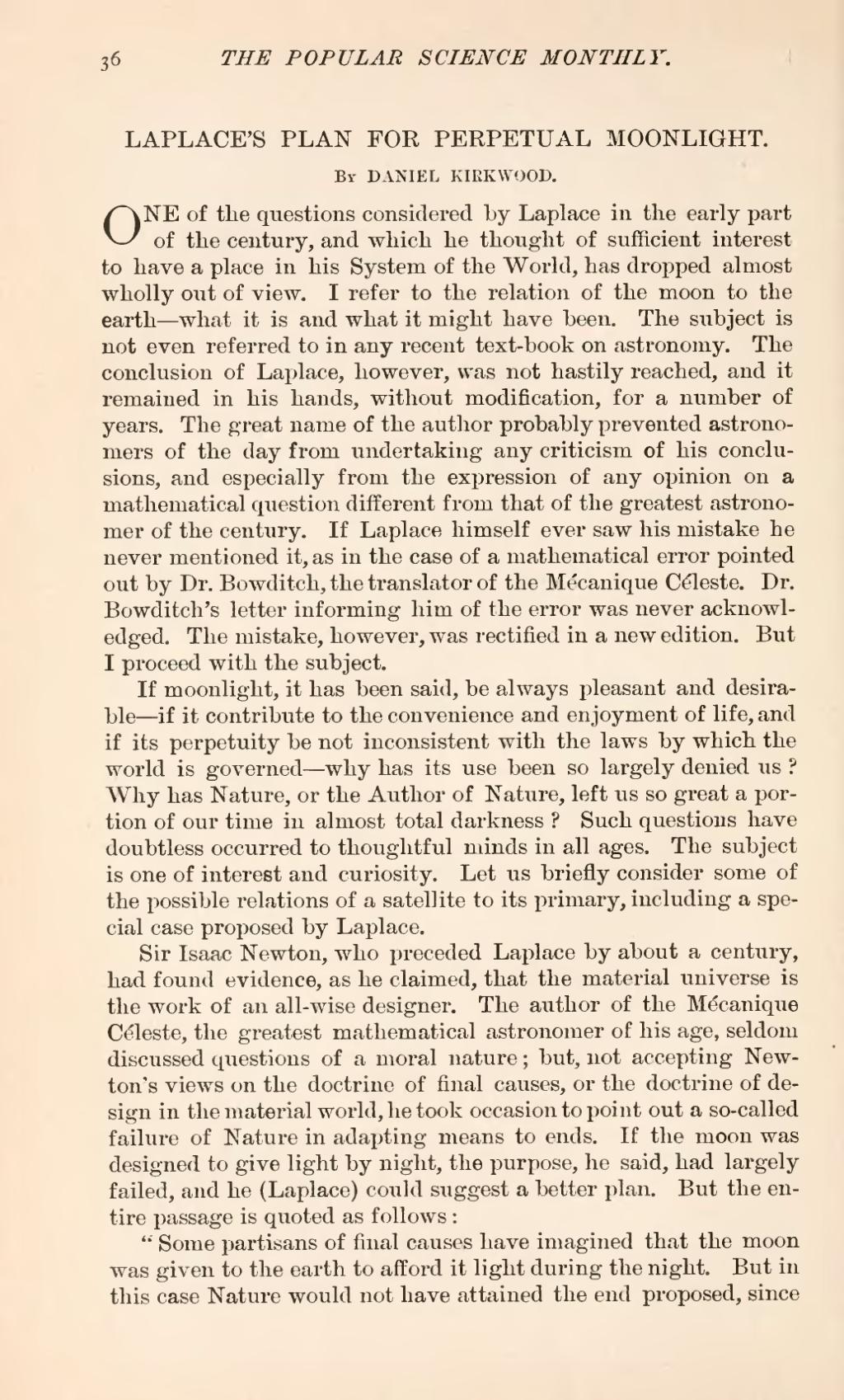| LAPLACE'S PLAN FOR PERPETUAL MOONLIGHT. |
By DANIEL KIRKWOOD.
ONE of the questions considered by Laplace in the early part of the century, and which he thought of sufficient interest to have a place in his System of the World, has dropped almost wholly out of view. I refer to the relation of the moon to the earth—what it is and what it might have been. The subject is not even referred to in any recent text-book on astronomy. The conclusion of Laplace, however, was not hastily reached, and it remained in his hands, without modification, for a number of years. The great name of the author probably prevented astronomers of the day from undertaking any criticism of his conclusions, and especially from the expression of any opinion on a mathematical question different from that of the greatest astronomer of the century. If Laplace himself ever saw his mistake he never mentioned it, as in the case of a mathematical error pointed out by Dr. Bowditch, the translator of the Mécanique Céleste. Dr. Bowditch's letter informing him of the error was never acknowledged. The mistake, however, was rectified in a new edition. But I proceed with the subject.
If moonlight, it has been said, be always pleasant and desirable—if it contribute to the convenience and enjoyment of life, and if its perpetuity be not inconsistent with the laws by which the world is governed—why has its use been so largely denied us? Why has Nature, or the Author of Nature, left us so great a portion of our time in almost total darkness? Such questions have doubtless occurred to thoughtful minds in all ages. The subject is one of interest and curiosity. Let us briefly consider some of the possible relations of a satellite to its primary, including a special case proposed by Laplace.
Sir Isaac Newton, who preceded Laplace by about a century, had found evidence, as he claimed, that the material universe is the work of an all-wise designer. The author of the Mécanique Céleste, the greatest mathematical astronomer of his age, seldom discussed questions of a moral nature; but, not accepting Newton's views on the doctrine of final causes, or the doctrine of design in the material world, he took occasion to point out a so-called failure of Nature in adapting means to ends. If the moon was designed to give light by night, the purpose, he said, had largely failed, and he (Laplace) could suggest a better plan. But the entire passage is quoted as follows:
"Some partisans of final causes have imagined that the moon was given to the earth to afford it light during the night. But in this case Nature would not have attained the end proposed, since

